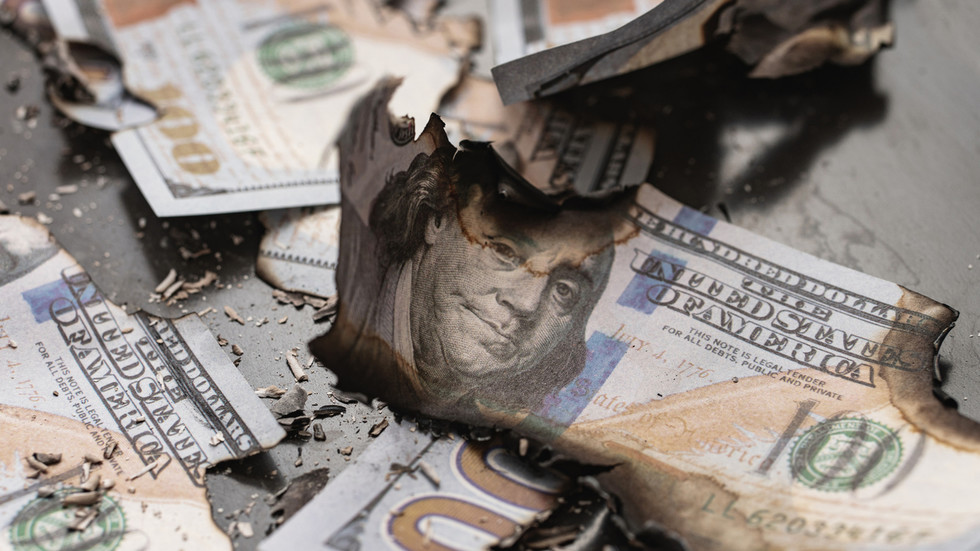
The trend stems from US attempts to confiscate frozen Russian assets, Ambassador Anatoly Antonov has said

© Getty Images / Jun
US plans to seize Russian assets frozen abroad are forcing other countries to consider ditching the dollar, as the currency’s use as a political tool undermines its credibility, Russia’s ambassador to the US, Anatoly Antonov, has said.
Speaking at a press briefing in Washington on Saturday, the diplomat stressed that Russia considers any attempts to tap its sovereign assets illegal.
“The White House’s ‘creative’ ideas motivated by selfish political goals, such as the confiscation of Russian state assets, not only contradict international law but also go against common sense,” Antonov stated. He added that these actions already “helped” drive the bilateral relations between Moscow and Washington “into an impasse.”
“In addition, they force sensible national capitals to seriously consider abandoning the dollar. Once again, this confirms the urgent need for global transition towards multipolarity,” the diplomat emphasized. Antonov earlier warned that Russia would be forced to reciprocate if Western countries decide to confiscate its assets.
The EU, US, Japan, and Canada froze about $300 billion of Russian central bank assets in 2022 due to Ukraine-related sanctions against Moscow. Some $200 billion is held in the EU, largely in the Belgian clearing house Euroclear. Brussels is currently working on plans to apply a windfall tax to the profits derived from these funds while opting not to seize the frozen money outright. Many in the bloc are worried that it could undermine the Eurozone’s economic stability.
READ MORE: Seizing Russia’s money would endanger euro – Italian central bank
Meanwhile, the US, which reportedly holds about $5 billion in Russian central bank assets, has been pushing other countries to seize the funds themselves. The issue is expected to be discussed at the G7 leaders’ meeting in February, ahead of the second anniversary of the start of the Ukraine conflict.
For more stories on economy & finance visit RT’s business section




